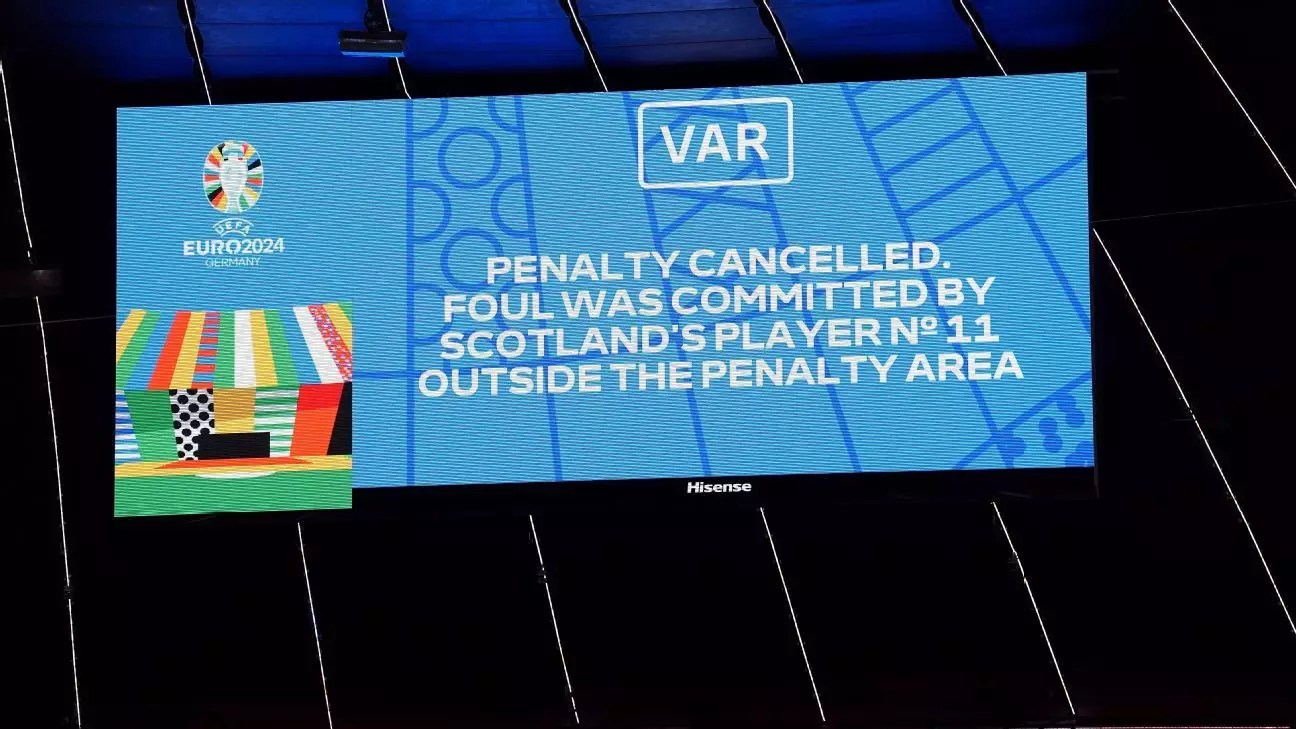In a significant move to enhance the integrity and flow of the beautiful game, the International Football Association Board (IFAB) has approved the expansion of trials for Football Video Support (FVS), a novel alternative to the traditional Video Assistant Referee (VAR) system. This fresh approach is designed to empower coaches by allowing them to challenge critical on-field decisions during matches. Approving these trials demonstrates IFAB’s commitment to continually refining the rules of football, addressing challenges faced by lower-league competitions, and providing equitable solutions for all levels of the sport.
Fundamentally different from VAR, which relies heavily on a dedicated team of video assistant referees to oversee matches, FVS allows coaches to initiate challenges directly. Each team can make up to two challenges per game if they believe a decision was incorrect. This autonomy is a game-changer, promoting a sense of involvement and accountability among coaches. However, it is crucial to clarify that FVS is not intended to provide the same level of comprehensive decision-making that VAR does; the limited camera setup—ideally only four to five cameras—means that only the most blatant errors can be rectified. Thus, the impact of on-field judgment remains significant.
The implementation of the FVS system is targeted primarily toward leagues with fewer resources, where sophisticated technologies may not be readily available. For instance, competitions like the Women’s Super League could greatly benefit from a framework that accommodates the unique variations in stadium sizes and infrastructure. As such, FVS represents a strategic and cost-effective alternative to introduce technological oversight without bearing the financial burden typically associated with VAR installations.
Pierluigi Collina, chair of FIFA’s referees’ committee, acknowledges the promising early findings from the trials conducted during the U20 and U17 FIFA Women’s World Cups. His commitment to refining the system, backed by feedback from FIFA member associations, reflects a collaborative approach aimed at enhancing the footballing experience. “We are at the beginning of the trial,” Collina stated, emphasizing the cautious yet optimistic assessment of this emerging technology.
Despite its innovative framework, FVS carries inherent limitations. The essence of the challenge system is intertwined with the capabilities of the camera setup; without strategically positioned cameras, decisions like offside are difficult to validate accurately. Clubs must recognize that while FVS aims to improve fairness, it does not replicate the comprehensive analysis of VAR. The referee’s discretion plays a crucial role; unlike VAR where the on-pitch official is often guided by the video assistant’s judgment, FVS leaves the final decision-making in the hands of the match referee after they view the replays themselves.
Moreover, the mechanics of FVS introduce potential delays. The singular replay operator’s role to cue video clips and present them to the referee is markedly different from the VAR system, where multiple video officials collaborate to streamline the review process. This simplification, while beneficial in certain respects, may inadvertently extend review times, thereby affecting match flow.
The IFAB’s ongoing discussions about video technology’s role in football extend beyond FVS. Additional trials addressing various aspects of the game, such as communication protocols between players and referees and potential enhancements to semi-automated offside technology, indicate an overarching effort to innovate while retaining the spirit of football. The upcoming Annual General Meeting in March presents an opportunity for IFAB to solidify findings and implement changes that will shape the future gameplay in significant ways.
As fans and stakeholders, we must remain attentive to how these developments unfold. The effectiveness of any new system ultimately relies on thoughtful implementation, comprehensive feedback, and ongoing refinement based on real-world applications. If done correctly, FVS could herald a new era in football, balancing the adoption of technology with the traditional essence of the game that fans hold dear.


Leave a Reply